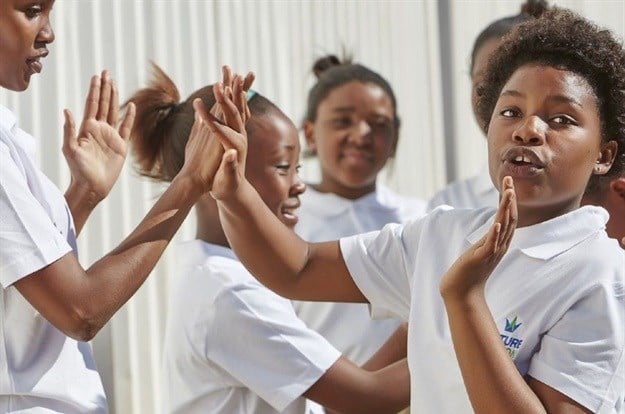The future of our nation lies in education

Founded in 2016 by Sizwe Nxasana and Dr Judy Dlamini, Future Nation Schools is a 100%-owned subsidiary of the Sifiso Learning Group. Their flagship schools include a pre-primary, primary and high school. The pre-primary schools offer a multilingual Montessori model with English, Mandarin and isiZulu as mediums of instruction and are located in Randburg, Lyndhurst and Fleurhof. The primary and high schools are situated in Lyndhurst and Fleurhof.
Education is something Nxasana and his wife, Dlamini have always held dear to their hearts. Nxasana's love for education is in his blood; his father was a school teacher and his grandfather established a school on their farm in Ixopo, KwaZulu-Natal.
This love and passion for education has led him to establish the Sifiso Learning Group, an integrated learning group that is focused on developing “an ecosystem” across the entire education spectrum – from an early childhood development phase, all the way up to tertiary level.
The school's education model is based on the project-based learning approach, which is aimed at getting learners to design, plan and execute extended projects by applying the theory they learn to solve real world problems.

According to Nxasana, “It’s important for us as Africans to realise that the way that learning and teaching takes place has not changed in the last 100 years, but the world around us has changed. The way that the real world has developed today is quite different because you need people who can think, solve problems, who can be trained to be leaders and entrepreneurs, and more importantly, people who understand that we live in a very dynamic environment and an environment that requires many skills.
"This is where the thought of creating such an educational group stemmed from, as Future Nation Schools aims to focus on developing an ecosystem across the entire education space that seeks to address these challenges. The challenges of training children in problem-solving skills, analytical skills, critical-thinking skills, but at the same time locating our position in the world confidently as Africans and we’re not apologetic about that."
What makes Future Nations Schools different to public, and even other independent or private schools?
The mere fact that it is an affordable independent school which gives access to the working class, distinguishes completely from other public and independent schools. In addition, its curriculum is African-based as it takes pride in being an African black-owned school. We need to recognise that there’s nothing in our DNA as Africans that make us any less than anyone else in the world, therefore we need a different approach to how we educate our children to have a cutting-edge as proudly Africans.
Where and how do we begin solving our education crisis?
Like mentioned previously, the approach in education hasn’t changed in 100 years. Hence, we need to accommodate and be in-line with the change of our world. When everyone starts to realise that, we’ll then be able to insert a mindset to children about not just being future employees but be world-changers, innovators and entrepreneurs.
What should our current government education system take and implement from this method of teaching?
Project-based learning can be adopted by any education system that is willing to intensify their teacher-development programme.
How can we make this level of education more accessible to underprivileged learners?
Project-based learning is accessible to all because its act of learning is through identifying a real-world problem and developing its solution. It does not need any special equipment.
What expansion plans are currently underway for Future Nations Schools?
Future Nation Schools have two big campuses that can accommodate more 1,500 students each. We are intending to build more schools in South Africa and in Africa in the near future.
About Shan Radcliffe
- #Newsmaker: Meet Curro Serengeti's new executive head - 30 Jan 2023
- Award-winning principal's recipe for educational success... - 12 Dec 2022
- Storyboards' starring role in e-learning program development - 30 Nov 2022
- Turning over a new leaf with eLearning Indaba - 28 Nov 2022
- What does the future of edtech in Africa look like? - 21 Oct 2022
View my profile and articles...